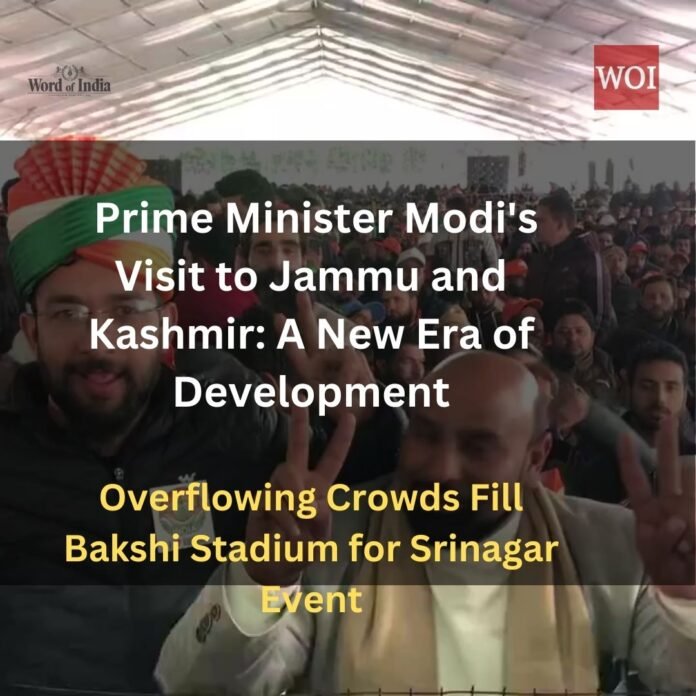BY shashank Pasupuleti
Prime Minister Modi’s Kashmir Visit: Development Projects Worth Rs 20,000 Crore Launched
Jammu and Kashmir, which has always been the center of Indian culture, experienced an important moment during Prime Minister Narender’s visit. The appointed Ramodi embarked on a landmark visit, one of his biggest forays into Union territory since the abrogation of Article 370. The visit was not only about the central government’s commitment to the development of the region, but also presented an overall development plan. Rs 20,000 crore, marking a new era of growth and stability hearing.
In the morning, amid the growing sense of security and tension, the Prime Minister arrived in Jammu and Kashmir to lay out his vision for the future of the region. The visit was carefully planned and various layers of security were put in place to ensure that the day’s activities were not disrupted; This underlined the importance of the event and the government’s commitment to maintaining peace.
Among the initiatives announced, the Prime Minister also announced the Banihal-Qazigund Road, an economic development project aimed at connecting Kashmir with other parts of India. The large four-lane tunnel should facilitate travel and transportation, encouraging joint ventures and easy access. Additionally, Modi laid the foundation stone of the Rattle and Kwal hydropower projects, emphasizing the government’s focus on sustainable development and energy self-sufficiency.
The government’s main statement on these projects forms the basis of its comprehensive plan to improve the region’s infrastructure, stimulate economic development and improve people’s lives. The PMO said these initiatives are part of a broader reform soon to be implemented following amendments to the law in August 2019 to ensure better governance and development.
More importantly, the visit also highlights the global scope of Jammu and Kashmir’s development. The Prime Minister talked about investment demands in the United Arab Emirates, including joint ventures of large companies, pointing to the growing international trust in the region’s capital, Nature. These international collaborations are seen as recognition of India’s sovereignty in Jammu and Kashmir and create a conducive environment for investment and development.
However, this visit and announcement did not occur in a vacuum. They oppose intractable political and security issues in the region, as well as ongoing debates over the impact of the 2019 constitutional reform. Although the government argues that the reform is necessary for integration and development, critics and some local groups are skeptical of the reform, worried about the possibility of change among citizens and affecting the sphere of freedom.
As Prime Minister Modi concludes that his visit leaves behind important projects and promises for the future, the people of Jammu and Kashmir should consider the way forward. Although the development has been welcomed by many, the general political discourse continues, reflecting the different views and wishes of the people of the region.
In this pivotal moment, as Jammu and Kashmir stands at the crossroads of tradition and modernity, the central government’s endeavors are poised to shape the region’s destiny, promising progress but also inviting scrutiny and debate. Only time will reveal the true impact of these initiatives on the ground, as the valley charts its course in the new landscape of post-370 India.
Prime Minister Modi’s visit to Jammu and Kashmir is a significant event that marks a new chapter in the region’s development narrative and is well-watched in India and abroad.
LATEST NEWS: PM Modi Inaugurates India’s first Underwater Metro in Kolkata


